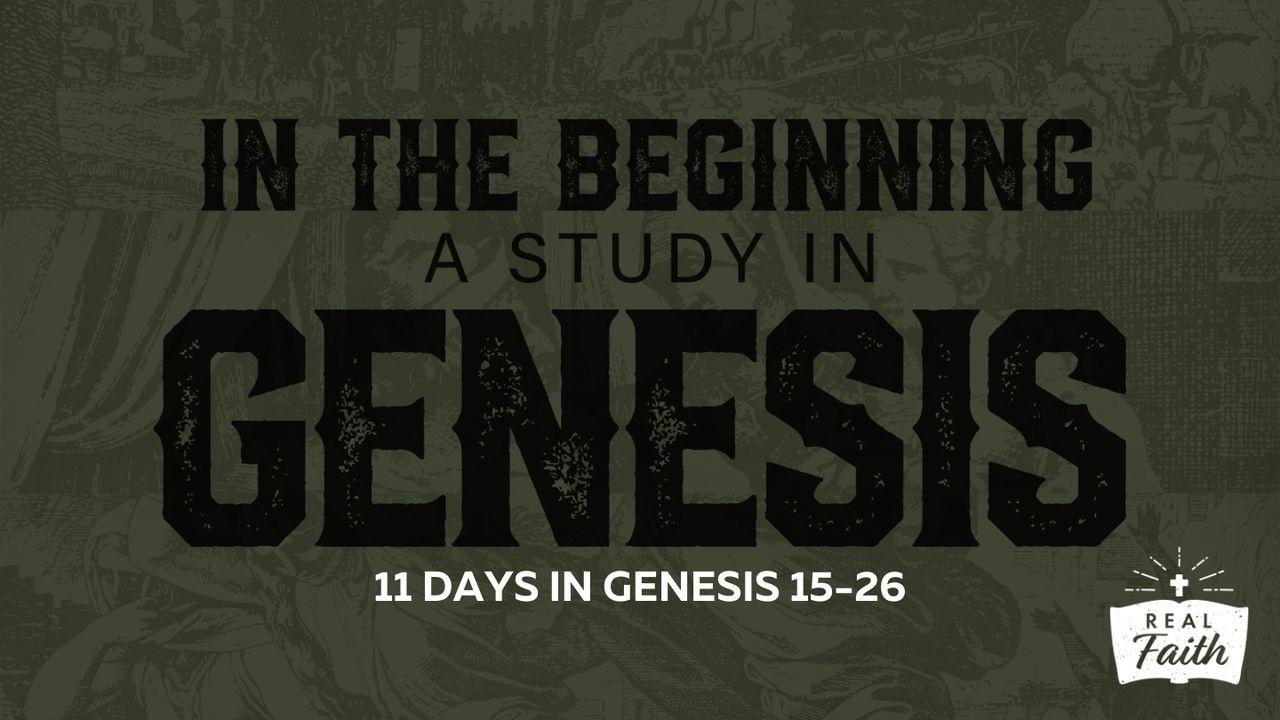In the Beginning: A Study in Genesis 15-26نموونە

Why Do Families Need Men to Lead?
Genesis 22:1-6 records the Lord appearing and speaking to Isaac as He had his father, Abraham. Likewise, God promised to be with Isaac, bless him, and give him descendants and land according to the promises of the covenant. God notes that He blesses Isaac because his father Abraham “obeyed me and kept my requirements, my commands, my decrees and my laws.” Though Moses had not yet been born, and the law had not yet been given, he obeyed it by faith as a pattern of someone who had God’s laws written on their heart by the Holy Spirit. This is also precisely the same language that Deuteronomy 11:1 uses to explain those people who love God and demonstrate it by obeying the law given at the Sinai covenant through Moses.
The rest of the chapter provides a number of similarities between Abraham and his son Isaac including:
•both men received God’s call and promise
•both lived during a period of famine
•both men dwelt in Gerar
•both men had lovely wives
•both men were cowards in the face of possible harm
•both men lied and said their wife was their sister
•both men were spared the consequences of their sin by God’s mercy
•both men were rebuked by more pious Gentiles for their lying schemes
•both men were pursued by Abimelech (Isaac may have actually dealt with Abimelech’s son or grandson with the same name) for a covenant
•both men were a blessing to their neighbors
•both men trusted God and lived peacefully with their neighbors
Despite Isaac’s unbelief that God would protect him and his wife, God blessed him, nonetheless, making him very wealthy. Despite attempts to destroy the financial blessing from God, God overcomes to prove that, even if His blessing is delayed, it cannot and will not be stopped, which is a great source of encouragement. From the story, it is apparent that Isaac was blessed solely because of God’s grace to him, as he was a conniving and undeserving man. Much like his father, Isaac is far from perfect, but God remains true to His covenant promises, nonetheless. The theme of salvation by grace alone is on full display in this chapter as the believer acts immorally, whereas the unbeliever acts morally.
In Genesis 26:25, we then see Isaac build an altar and worship the Lord as his father had done, which shows that he also shares the faith of his father. This act is the first outward, visible demonstration that he is in fact a believer. This scene closes by demonstrating how the unbelieving Abimelech recognizes God’s presence with and blessing of Isaac, something that God further proves with the provision of a well that was essential to the survival of his household. Since Isaac accepted the piece of ground without a known well, he may be acting much like his father Abraham did with Lot in Genesis 13, trusting God to give him the right piece of land and even provide him a well, as God did faithfully.
The chapter then concludes with a brief note about Isaac’s son, Esau. Like Isaac, Esau married at the age of 40. But, unlike Isaac, he married two godless women rather than one godly woman. Esau’s impetuous and foolish decision-making that began with him foregoing his birthright apparently continued and was a “source of grief to Isaac and Rebekah.” The text leaves us to wonder why Isaac did not devise a wise plan to choose a wife for his son as Isaac’s father Abraham had for him.
Questions:
- What do we learn about the importance of who we marry yet again in this chapter of Genesis? How is Genesis showing us that the two most important decisions we make are 1) who our God is and 2) who our spouse is?
- What does Genesis 26:14-15 reveal about coveting and jealousy that some people have when God blesses others?
For the sermons that accompany this plan as well as a study guide and more complimentary resources on Genesis, visit realfaith.com .
کتێبی پیرۆز
دەربارەی ئەم پلانە

In this 11-day plan, you will study Genesis 15-26, focusing on God’s faithfulness to sinful families that He works through for His glory. It includes a devotional passage for each day as well as reflection questions to apply this book of the Bible to your life. Whether you’re just curious about the Bible, a new believer, or a long-time follower of Jesus, God will speak to you through it.
More









